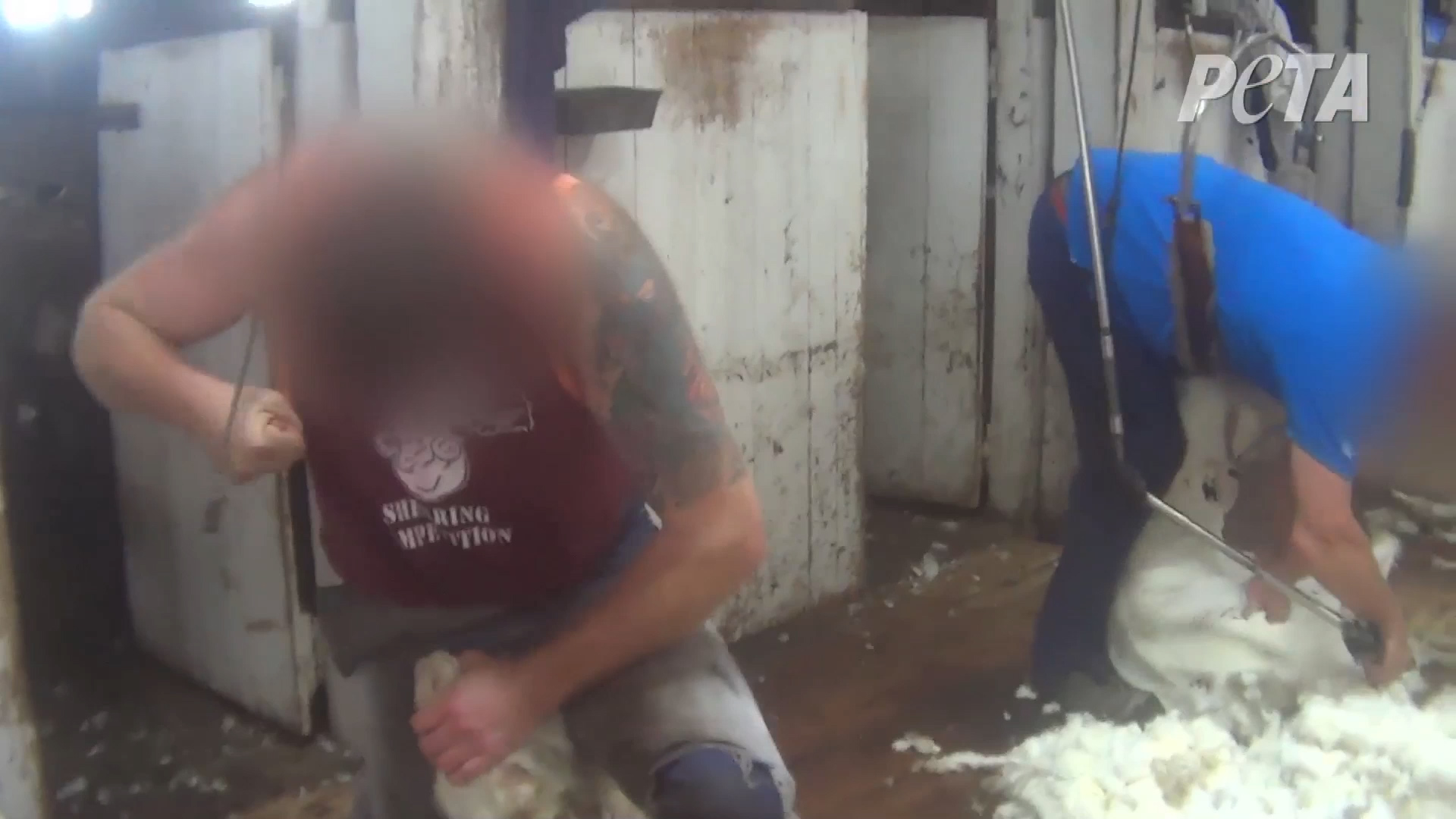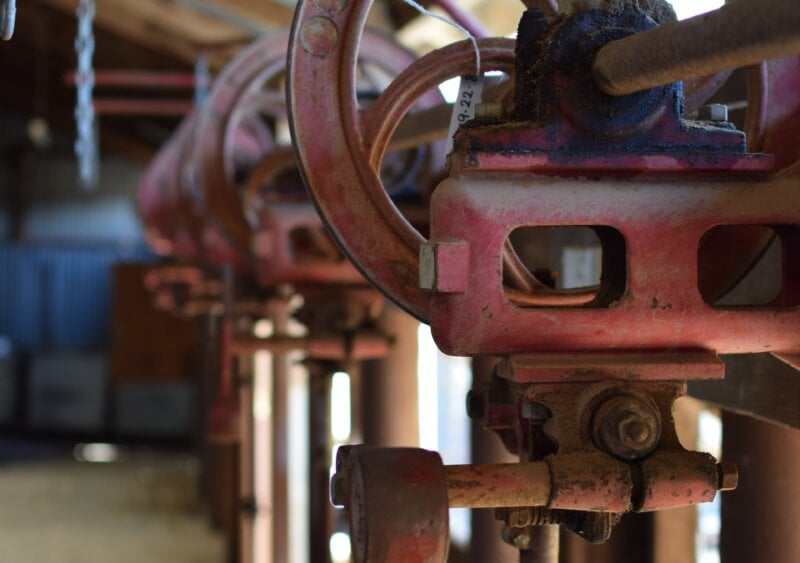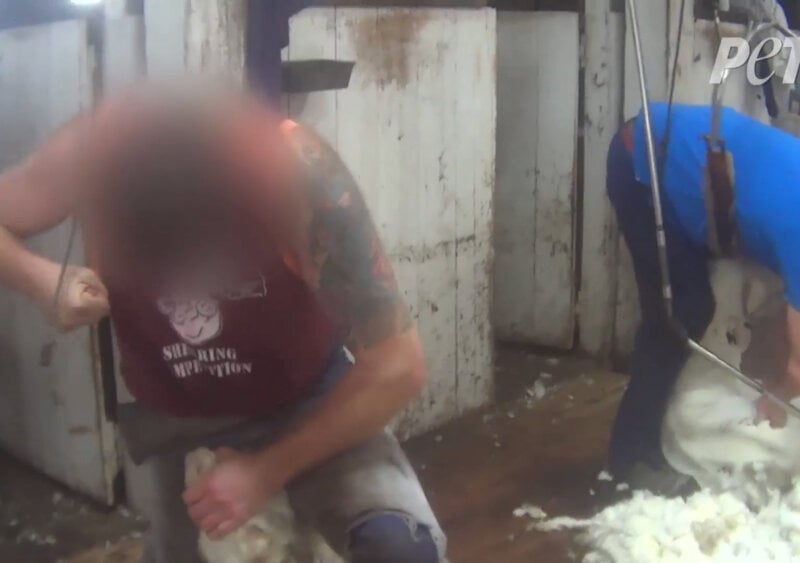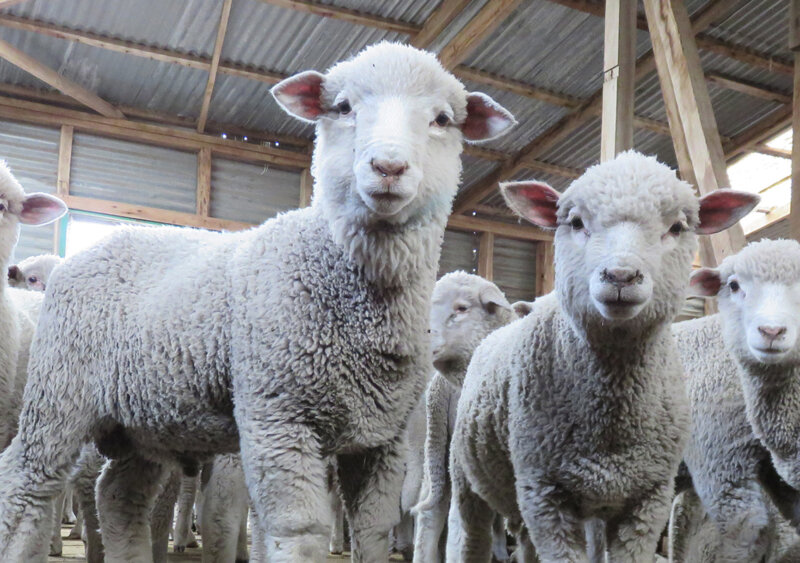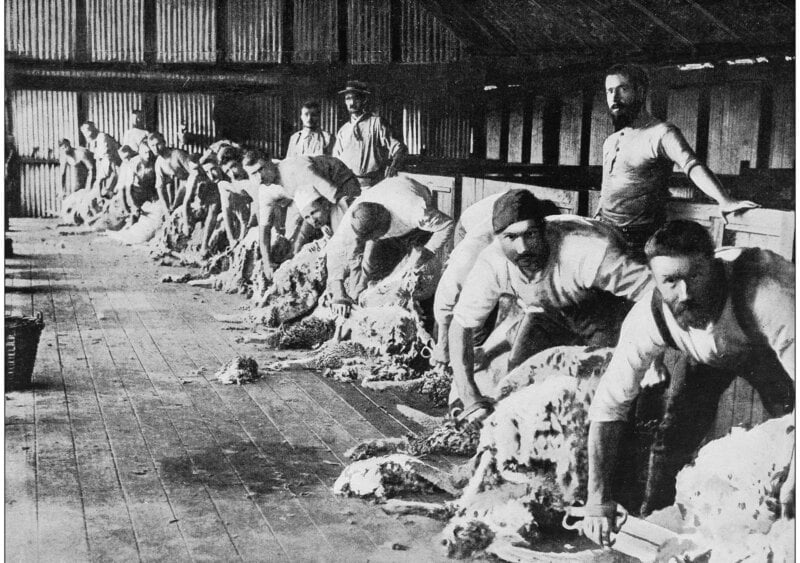Perpetration-Induced Traumatic Stress
Just as human hair starts to thin and become brittle as we age, the same happens to sheep’s wool, making them less profitable to farmers. When sheep used for wool are in their midlife (around 5 or 6 years old) they are taken to saleyards and sold to the highest bidder – usually either an abattoir or a live exporter.
Some sheep are killed between 6 – 8 months old for ‘lamb’ meat and will be shorn prior to this since the first shearing produces the most profitable wool.
In this way the wool industry is also a slaughter industry, responsible for harrowing psychological trauma for the humans who find themselves killing for a living.
“Perpetrator-Induced Traumatic Stress” (PITS) is the term used to refer to symptoms of post-traumatic stress disorder experienced by slaughter workers, which include depression and suicidal thoughts. Australian research found that aggression levels among meatworkers were so high they were “similar to some reported for incarcerated populations.”
The wool industry is also a slaughter industry.
Those who spend their days killing and dismembering animals become desensitised to violence.
In countries such as Australia, the United States of America and the UK, abattoirs are some of the poorest and most exploited in the country, and a large number of meat-processing workers are immigrants. An investigation into the UK’s meat industry by the Equality and Human Rights Commission revealed evidence of widespread mistreatment and exploitation of workers – in particular, migrant workers and pregnant women – including physical abuse by managers, discrimination, unsafe working conditions, bullying, and being forced to work 90 hours a week.
As the saying goes, hurt people hurt people. Those who spend their days killing and dismembering animals necessarily become desensitised to violence, making them more likely to commit violence outside the abattoir too. Academic studies have shown that in communities where abattoirs are a source of employment, rates of domestic violence, rape, and child abuse are high.
While there are no studies for the effects of PITS on shearers, it’s clear that cruelty to animals is rife within the industry and near impossible to stamp out completely given the nature of using sharp tools on animals who instinctively fear being handled.
Of course, it’s important to remember the violence directed at animals in the wool and, ultimately, sheep meat industries and keep their welfare and rights at the forefront of our minds. But we must also spare a thought for the people – from the shearers working a frantic pace to make the wages they were promised, to the abattoir workers who repetitively slit the throats of hundreds of animals every single day, and the crew exposed to dangerous pathogens on board live export ships. None of these people are really benefiting from the industry beyond earning a minimum wage to put food on the tables for their families, and in many cases, suffer psychologically and physically from their work.
